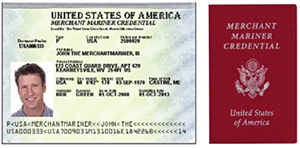Strained by a backlog of Merchant Mariner Credential (MMC) applications and a shortage of qualified processors, the National Maritime Center (NMC) has provided an extension for affected mariners as it works to implement solutions.
The NMC attributed the backlog in part to “a higher-than-average volume of applications,” particularly during the last four months of 2016. Due to the surge, processing fell behind and the agency was unable to provide timely endorsements.
As a temporary remedy, the NMC afforded mariners whose national endorsements expired on or after Dec. 1 an extension to Sept. 30, 2017. The agency, however, was not in a position to extend the Jan. 1 deadline for mariners subject to the International Convention on Standards of Training, Certification and Watchkeeping for Seafarers, or STCW (see sidebar).
The Coast Guard announced another setback due to Hurricane Matthew, which hit the Southeast in October. Regional Exam Centers (RECs) in Miami and Charleston struggled to recover from “excessive inventories” of MMC applications in the wake of the storm. The NMC has since urged mariners to submit their MMC applications to centers “other than Miami and Charleston” until further notice.
The pileup of credential applications has also adversely affected the workload at NMC headquarters in Martinsburg, W.Va. Capt. Kirsten R. Martin, commanding officer at the NMC, announced that the center is “experiencing a shortage of qualified evaluators at the upper credential levels, which is contributing to increased processing time.”
According to Coast Guard spokeswoman Katie Braynard, training qualified evaluators to clear the backlog before the current extension expires is at the top of the center’s priority list. To accomplish this, Braynard said the center has been offering overtime to qualified evaluators and “temporarily utilizing qualified evaluators who fill other roles at the unit.”
“The NMC developed and continues to improve upon a robust training system from entry-level to senior evaluators,” Braynard said. “Training sessions are conducted for all staff regularly, and targeted training classes are conducted to train new evaluators and those ready to progress to the next level.”
American Maritime Officers (AMO), one of the largest groups of credentialed mariners in the United States, depends on a fully functioning NMC credentialing process to sustain the livelihood of its members. “In this position we are impacted by the processing delays at NMC in both the evaluations and course approvals divisions in varying degrees,” said Jerry Pannell, director of member training and officer development at the STAR Center, which is responsible for training AMO members.
Officials at the NMC said they were unaware of any instance where a mariner has been adversely impacted by the MMC processing delays. The possibility of a mariner losing a position aboard a vessel as a direct result of the backlog is low, they said.
Pannell, on the other hand, said the bottleneck could pose a very real threat to mariners. “While this is a very small percentage, the mariners who are being delayed risk the potential of missing a shipping assignment, which impacts them personally and financially,” he said.
If NMC officials become aware of mariners with these concerns, the Coast Guard will address each circumstance “on a case-by-case basis in an effort to prevent this from happening and will continue to do so,” Braynard said.
Addressing speculation about processing time frames moving forward, Braynard said, “As of the end of December 2016, 50 percent of all MMC transactions were issued within 33 days. This means that currently 50 percent will take longer than 30 days. These statistics do not differentiate between STCW and national endorsements.” She also noted that STCW applications “will have first priority.”
Due to the urgency regarding time-sensitive STCW endorsements, the Coast Guard agreed to a recommendation by the International Maritime Organization to provide a “last-minute” STCW enforcement delay.
“As we recover from this inventory backlog, we will capture our lessons learned and evaluate potential options to prevent future occurrences,” Braynard said.

